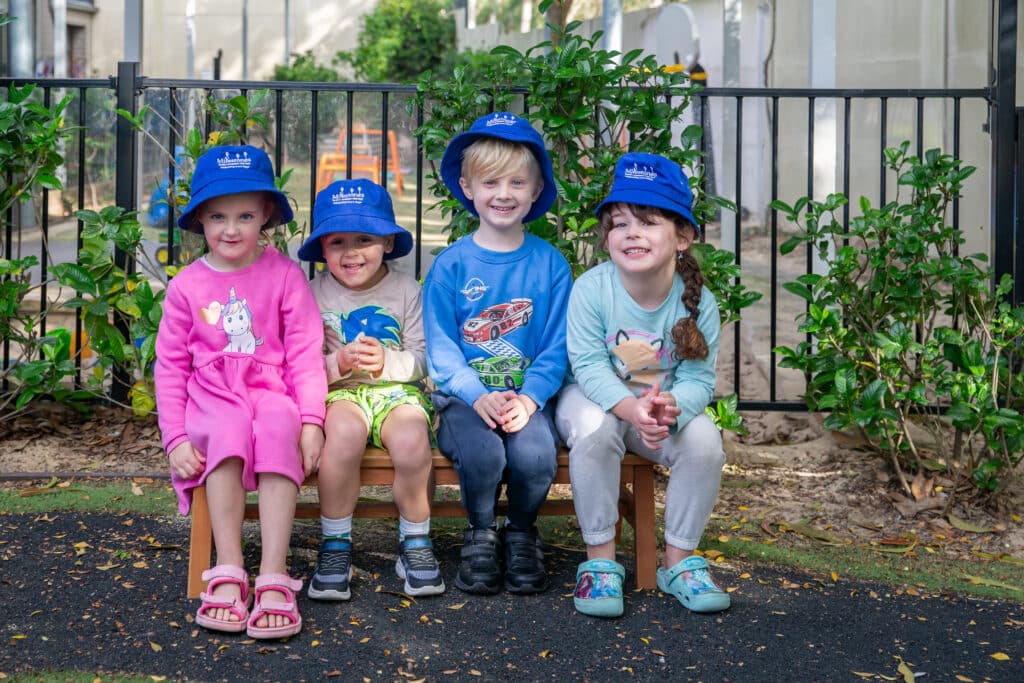
Building Friendships, Building Confidence: How Early Friendships Prepare Your Child for School
As parents, one of the biggest milestones we look forward to is our child starting school. It’s an exciting time, but it can also be a little daunting – especially when it comes to helping your child adjust to new routines, environments, and friendships. At Milestones Early Learning, we understand the importance of preparing children for this transition, and we believe that one of the most powerful ways to build their confidence is through the friendships they form during their early years.
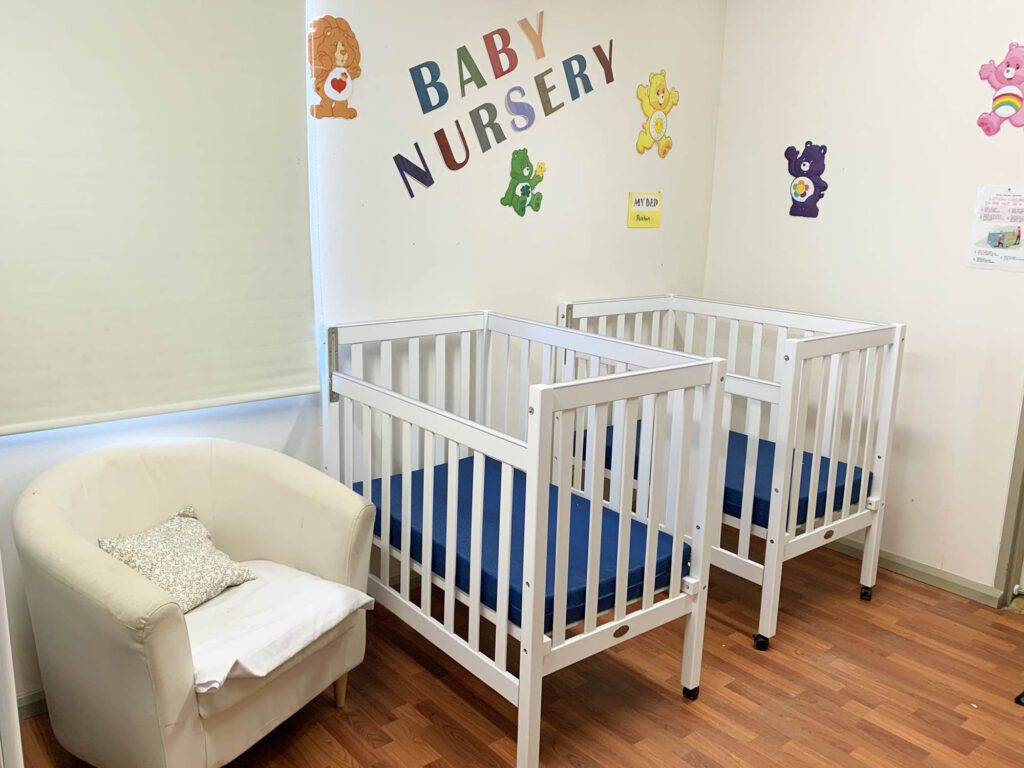
Safe Sleep at Child Care: Creating a Secure Sleep Environment for Babies at Milestones
At Milestones Early Learning, we know that your baby’s safety and security are your top priorities – it’s ours too. Sleep is essential for your baby’s growth, brain development, and overall well-being. Quality sleep supports memory consolidation, emotional regulation, and physical growth, all of which are crucial during the early years of life. That’s why we take every step to ensure that your baby not only gets the sleep they need but does so in the safest environment possible.
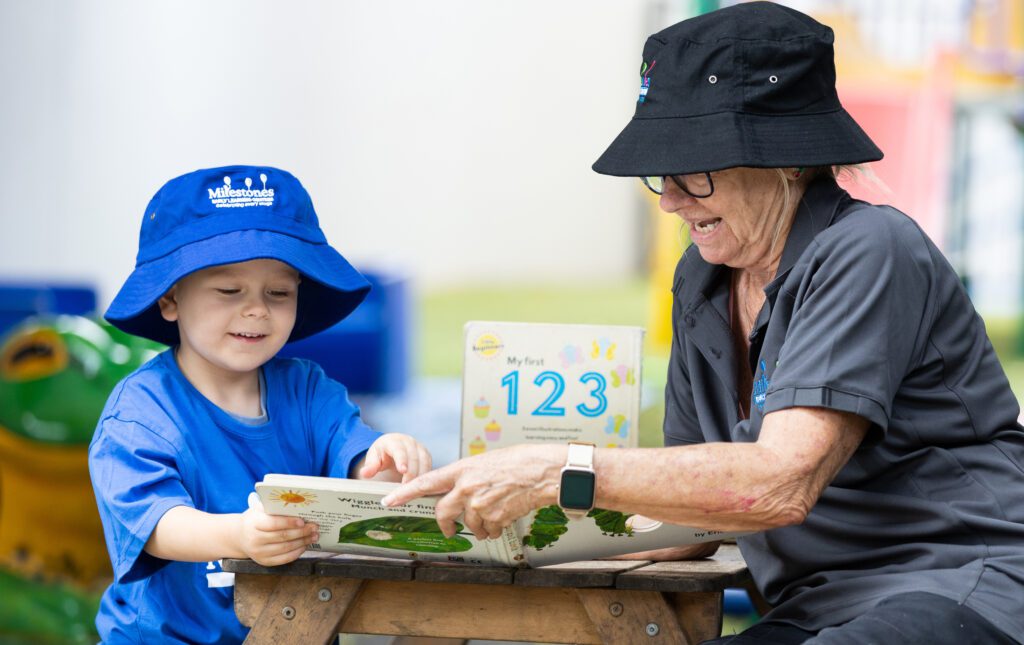
Story Time Adventures: Our Favourite Children’s Books to Read Together
Story time is a magical way to bond with your child while helping them develop essential language and social skills. At Milestones Early Learning, we use story time as a fun and engaging tool to support children’s growth, aligned with the Lifelong Learning Curriculum. Reading together not only sparks their imagination but also boosts early literacy and cognitive development.
In this post, we’re sharing a list of our favourite children’s books that align with the learning themes we explore at our centres. Plus, we’ve added some simple tips to make story time more interactive, bringing each book to life with sound effects, props, and fun questions to keep your little one engaged.
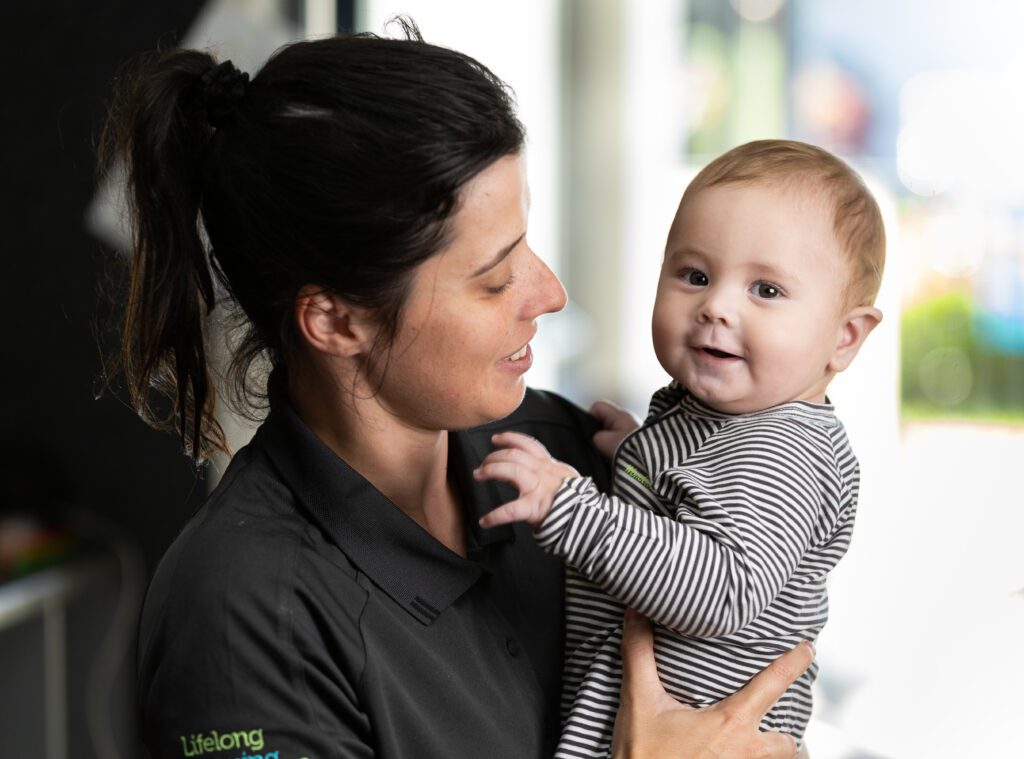
Feeling Torn About Returning to Work? Here’s How Child Care Can Be a Positive Step for Your Baby
As a mother, the thought of returning to work after parental leave can bring up a lot of emotions. You may feel torn between wanting to be at home with your baby and needing or wanting to return to work. It’s completely normal to feel this internal struggle. At Milestones, we understand how difficult this decision can be, which is why we are here to reassure you that child care can be a positive step for both you and your baby.
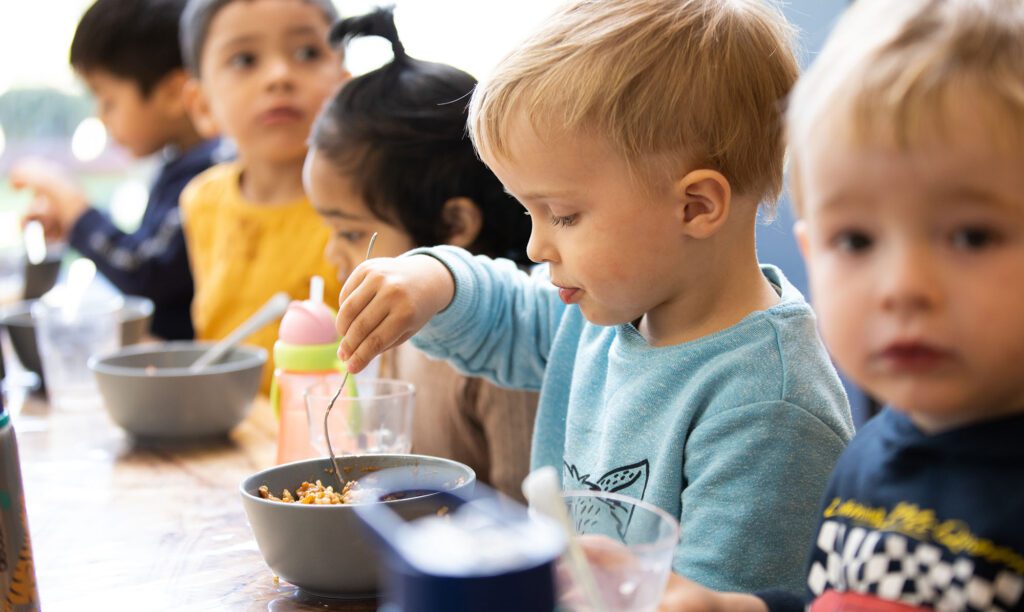
Food, Fun, & Friends: Why Group Mealtime Matters for Child Development
Group mealtime is more than just eating – it’s a valuable opportunity for children to learn essential life skills. At Milestones Early Learning, we recognise that shared meals help foster social development, build healthy eating habits, and create a sense of community.
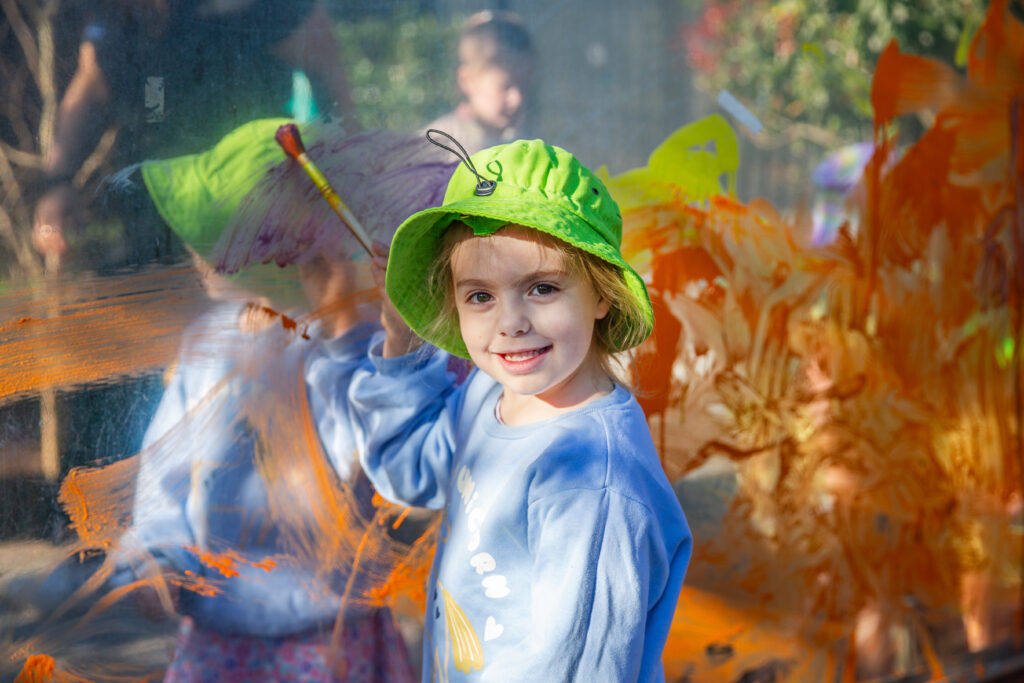
Promoting Positive Self-Esteem in Young Children
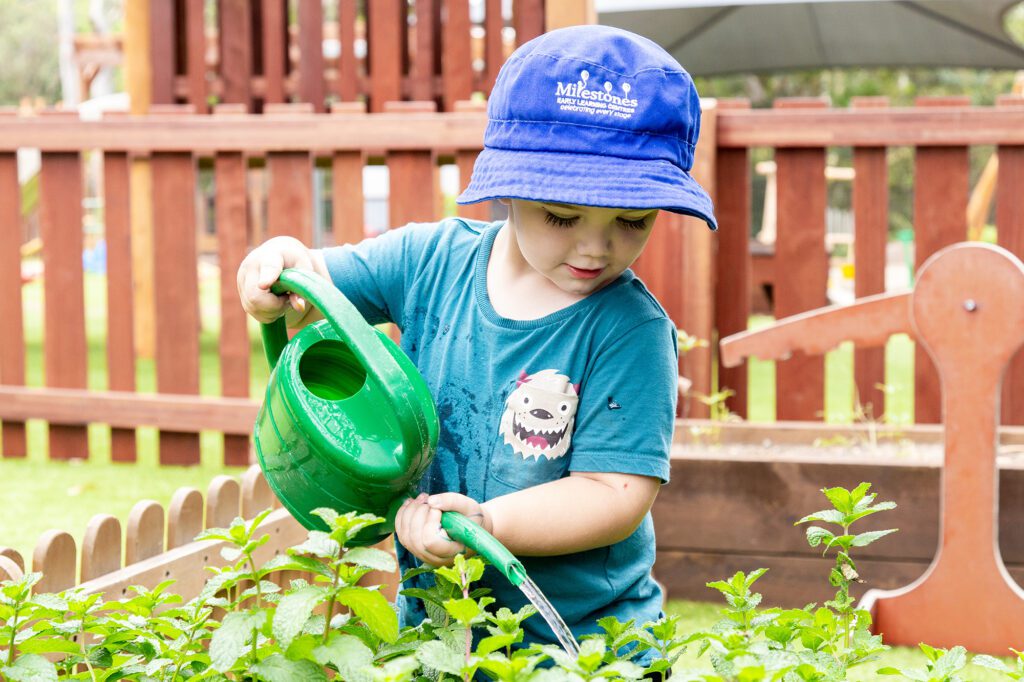
Sustainable Learning, Sustainable Futures: How Environmental Education Leads to Lifelong Success
As parents, we all want to give our children the best start in life – one that equips them not only with knowledge but with the values and habits that will guide them toward a successful and meaningful future. At Milestones, we understand that true success begins with a deep connection to the world around us. That’s why we’ve integrated environmental education into our Lifelong Learning Curriculum, partnering with the Australian Wildlife Conservancy to bring the Aussie Wildlife Champions program to life. This program doesn’t just teach children about Australia’s unique animals and habitats; it nurtures a sense of responsibility and stewardship that will serve them – and our planet – well into the future.
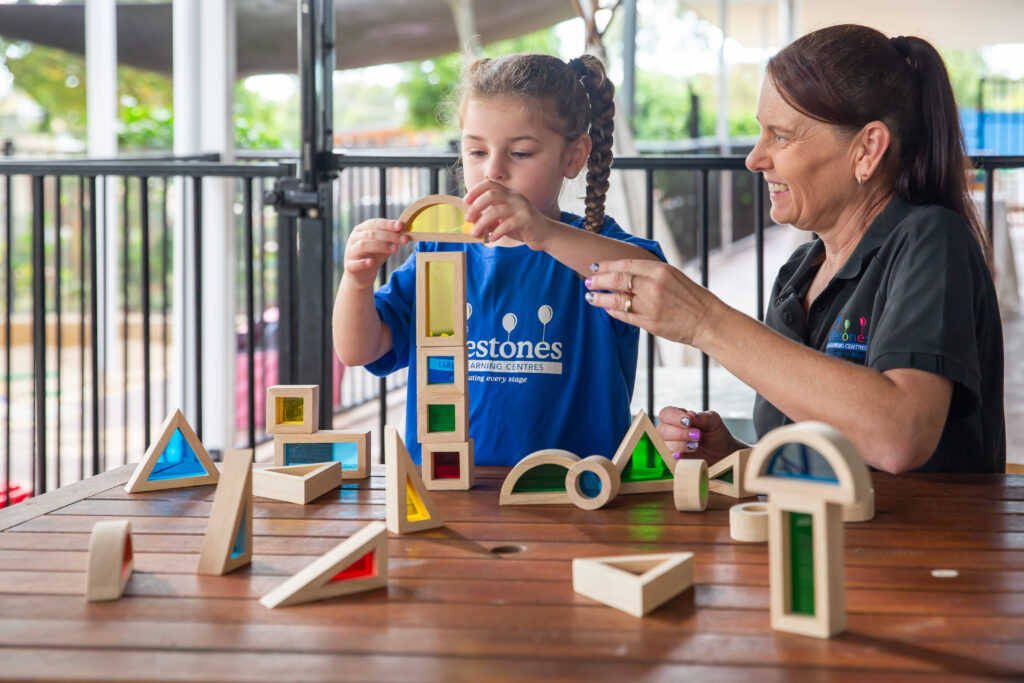
Superheroes in Disguise: How Early Childhood Educators Save the Day (and Your Sanity!)
When it comes to superheroes, most of us picture capes, masks, and superpowers. But what if we told you that some of the most powerful superheroes are the ones without capes – the ones who greet your child with a smile every morning at Milestones? Early childhood educators might not have x-ray vision or the ability to fly, but they possess extraordinary skills that help children grow, thrive, and reach their fullest potential. And in doing so, they provide invaluable support to parents too.
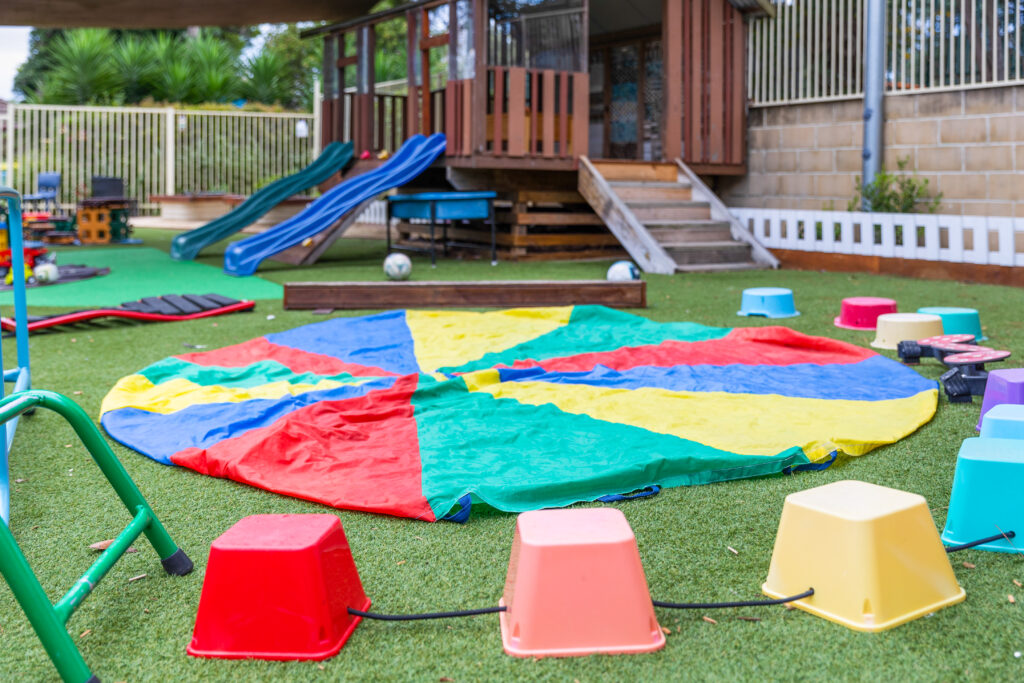
How Play-Based Physical Activities Boost Literacy Development in Children
Play is a fundamental part of childhood, and it’s also one of the most powerful tools for learning. For young children, play-based physical activities like obstacle courses, climbing frames, and ball games are more than just fun – they’re essential for developing important spatial and temporal language skills. These skills, in turn, lay the groundwork for literacy development, setting the stage for future academic success.
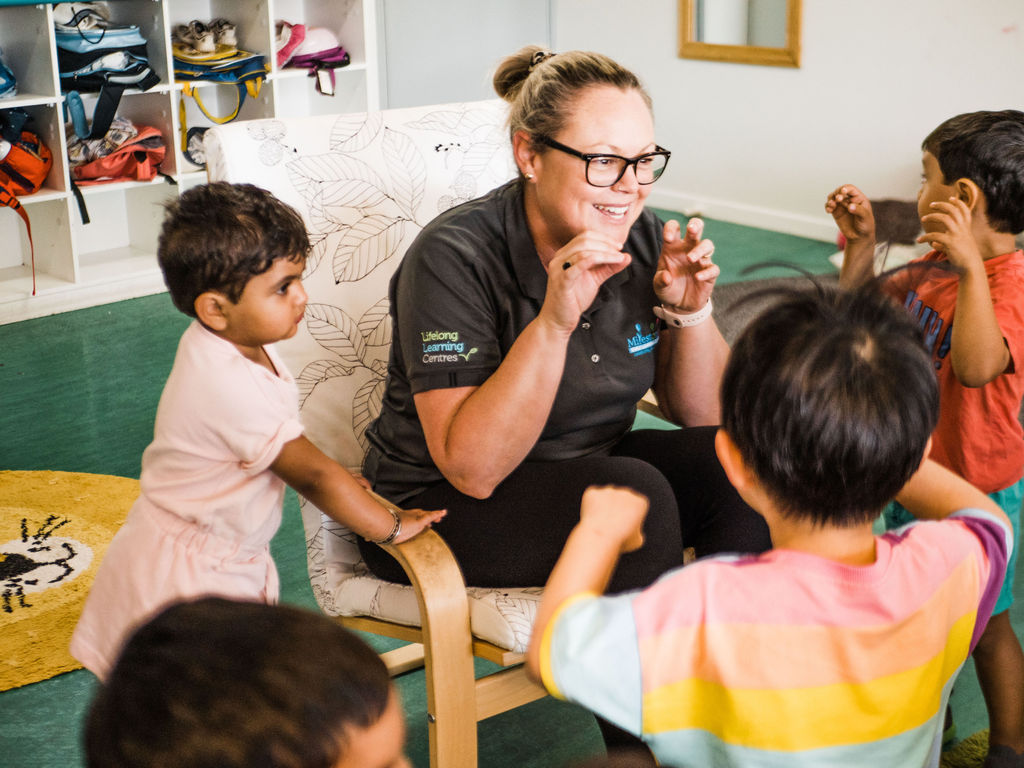
Maximising Your Child Care Subsidy: Tips for Families
Navigating the world of child care can be challenging, especially when it comes to understanding how to make the most of the Child Care Subsidy (CCS) in Australia. Whether you’re new to child care or looking to optimise your current situation, this guide is here to help. We’ll walk you through what the CCS is, how to calculate your entitlements, and some practical tips on maximising the benefits of your subsidy.
